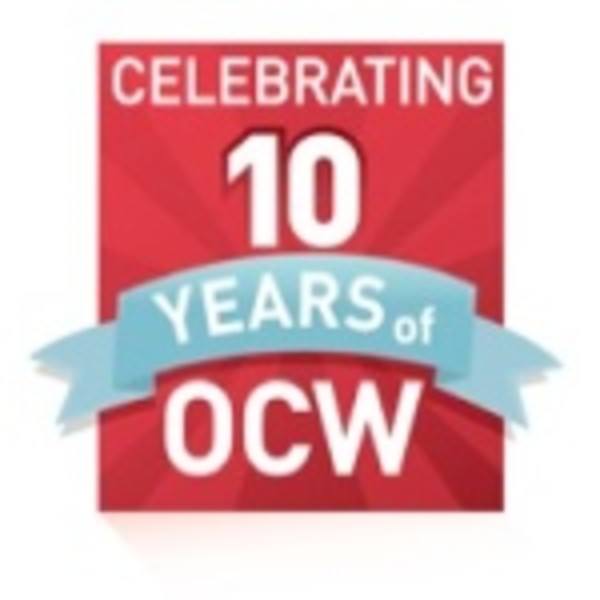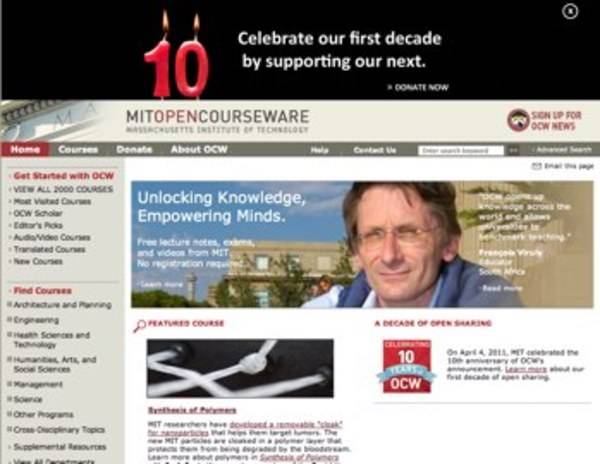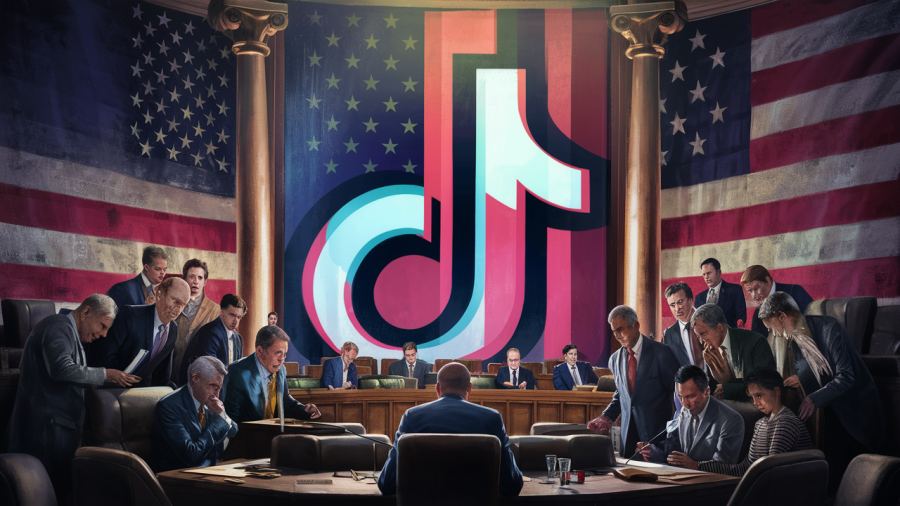This week the OCW Consortium is holding its annual meeting, celebrating 10 years of opencourseware. The movement to make university-level content freely and openly available online began a decade ago, when the faculty at MIT agreed to put the course materials from all 2000 of the university’s courses on the Web.

With that gesture, MIT OpenCourseWare helped launch an important educational movement, one that MIT President Susan Hockfield described today as both the child of technology and of a far more ancient academic tradition: “the traditional of the global intellectual commons.”
The opening keynote at today’s OCW Consortium meeting was Tim O’Reilly, founder and CEO of O’Reilly Media, who spoke on “Perspectives on Open” and on what opencourseware and open education can learn from the open source movement.
The similarities between the two go beyond the shared adjective of “open.” Both opencourseware and open source value the independent learner, and as O’Reilly noted, a great many people who’ve built the world of technology around us are self-taught. There are often no courses for those technologies, but through its publishing, conferences, and investments, O’Reilly Media has supported people who are “innovating from the edge.”

The focus, says O’Reilly is on changing the world by spreading the knowledge of these innovators, focusing on that mission itself rather than on how that is actually accomplished.
And that is the advice he had for the OpenCourseWare Consortium members in the audience today, the representatives of the 250 universities who have published some 15,000 courses online – free and openly licensed: Focus on the mission. Think deeply about what it is that universities really do.
Unbundling the University with OpenCourseWare
Are universities about credentials or research? Are they a repository of knowledge? It’s important, O’Reilly argued, if you want to be innovative “to think about what job you do for your customers (for your students) and not just think about how you do that job today but why you do it.”
But it isn’t simply a matter of thinking (or rethinking) your mission when it comes to making your university’s course content available online. O’Reilly emphasized the importance of smaller pieces and modular design – to disassemble or unbundle some of that lengthy university heritage and offer OCW students learning opportunities that work more like YouTube talks, perhaps – 5 minute increments rather than 90 minute lectures, or semester-long courses.
Focus on the People, Not Just the Project
One of the most important lessons to be learned from open source may be to develop in public. O’Reilly pointed to the social coding site GitHub or the open source directory Ohloh as examples of how the development of ideas can and should be undertaken in public and with a community in mind.
It’s important to make affordance for “the social,” and to add community participation even to the things that may not seem inherently participatory. Developing an “architecture of participation” doesn’t just mean measuring how many people download your courses or view your pages, but accounts for how many people actually contribute.
There seem to be many forces at play right now that are forcing higher education to rethink itself – rising student loan debt, falling government and foundation funding. Some universities are weighing the decision to monetize their course content online via distance learning programs, as opposed to opening that content via OCW.
Opencourseware, much as the open source movement did to software development, may be one of the key things that helps universities reconsider how they can build an open and interoperable learning environment and how they can actually create more value than they capture.
The slides from O’Reilly’s talk are embedded below and available here.










